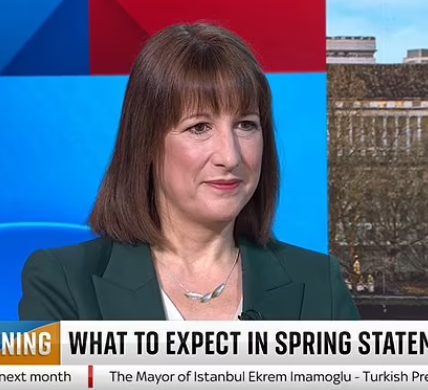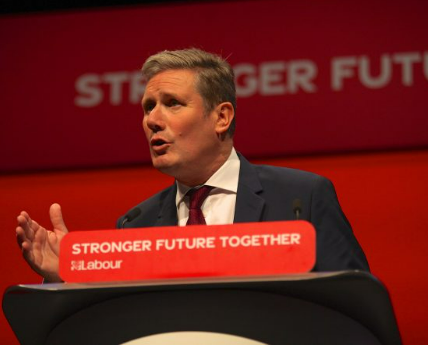We live in solar farm capital of Britain, Labour want us to give them energy but we just want our country life back_Nhy
Cornwall has quickly become the UK’s new solar farm capital and the rolling fields and winding lanes are at risk being replaced by seas of black glass brought in by greedy energy companies from overseas.
The south west county reportedly has 27,000 solar panels already, more than anywhere else in the UK and with many more planned under Ed Miliband’s green energy rollout, residents and councillors are becoming increasingly frustrated.
Locals highlight the loss of productive and versatile farmland, the lack of job creation or any significant benefit to the local economy and the industrialisation of the countryside as reasons to think again.
The village of St Stephen, three miles from St Austell, which grew out of the 18th century clay industry and mining has become a new battleground.
Energy companies started buying up nearby farmland in a solar goldrush several years ago, hoping to take advantage of the village’s proximity to main power lines.
In a few short years seven sites had sprung up in the parish, comprising thousands of panels, with another already granted permission for development.
Now 80% of the four square miles of the parish is in sight of a solar panel and French energy giant EDF is seeking permission for a 200 acre solar farm just to the west of the village. If approved, it will see a third generation tenant farmer lose their livelihood.

Pictured in front of the affected farmland are (L-to-R) Julie Floyd, Sally Blake, Rose Barnecut, Jacques Egbers, Andrea Feltham, Mark Blake, Mike Bulley.

Paramedic Mike Bulley, 39, lives next door to the proposed site and is worried about the plans

The village of The village of St Stephen has been earmarked for the next huge solar farm
Rose Barnecut whose family have farmed land near EDF’s proposed solar farm for four generations described it as another kick in the teeth for farmers following the Labour government’s inheritance tax row.
She said: ‘It started off incrementally, one little solar farm after another, and you accepted it but then it becomes like dominoes and suddenly it’s right on your doorstep on ground that should absolutely be protected.
‘It’s one of the best farms in the parish, it’s been farmed really well by generations of tenant farmers who have been evicted.
‘Farmers are in such a difficult position, they can’t afford to battle against it and if they don’t get compensation they have lost everything.
‘Everything you see around you is going to be completely destroyed by this sea of black glass for no benefit. For the clay industry at least we had jobs, this will bring no benefits and no jobs.
‘The amount of wealth that has come out of this area is incredible, it’s paid its share and look how much wealth is left here, none. It’s a big multinational company coming to poorer areas of Cornwall to make a profit and we pay the price.’
Frustrated at a perceived lack of protection, residents have formed the Stop Trelion Solar Farm campaign and are coordinating with other grassroots campaigns which have enjoyed success.

Signs and posters have been put up in opposition to the planned Trelion Solar Farm

Rose Barnecut’s family have farmed land near EDF’s proposed solar farm for four generations

She says it is another kick in the teeth for farmers after the inheritance tax rise

Pictured (L-to-R) Rose Barnecut, Mike Bulley, Andrea Feltham, Julie Floyd, Mark Blake, Sally Blake, Jacques Egber
With many homes near the proposed site drawing their water from boreholes, residents are alarmed by the risk of toxins contained in solar panels including carcinogenic cadmium contaminating groundwater.
Paramedic Mike Bulley, 39, lives next door to the proposed site, said: ‘It’s a concern especially if you have a borehole and we are planning to live here for a long time so I want some more information on the cumulative effects but when I asked them they had no information. That’s a great concern.
‘There is so much wildlife in the area which is going to be grossly affected by it and push more wildlife onto busy roads.
‘We’re not NIMBYs, this isn’t just about this community but what is happening is scary. We need to look at other options that doesn’t involve losing prime versatile farmland.
Julie Floyd, 59, an accountant, added: ‘The area is a haven for wildlife and if they have got to cross that busy main road to be faced with a two metre high fence it completely disrupts the natural way of things.
‘The impact on wildlife is unacceptable. It’s just a crying shame.’

A sign near the proposed site has encouraged people to make their objections known on the planning application

Accountant Julie Floyd said the impact the solar farm would have on wildlife was ‘unacceptable’

Mike Bulley is concerned about the affects the solar farm may have on the local water supply
And small business owner Mark Blake said: ‘It’s farcical that they are doing this on green field rather than industrial land. They are going to take the power cables from the green fields through the industrial land which is basically baron because it’s slightly more expensive.
‘It should be built on the industrial brownfield site to begin with where nobody would complain. You can’t grow potatoes on tips but you can put solar farms there.
‘This should never have even reached the planning stage but the reason EDF can do it is because Cornwall Council has no money to fight it.’
Campaigners have been encouraged by the recent refusal of an almost identical site in Canworthy Water, near Launceston, where residents argued the visual impact was too great and claimed Cornwall was being used as a ‘dumping ground’ for solar panels.
In August, Cornwall Council’s strategic planning committee voted against the application by 7-3. Local councillor Barry Jordan said the proposals were causing people ‘sleepless nights’ and ‘anguish’.
And 125,000-panel proposed solar farm between Truro and Newquay has been compared to a ‘glass and concrete prison’ by locals.
More than 100 concerned people, including farmers, attended a meeting in March to voice their oppostion. A decision is expected later this month.
A new report from the Department for Energy Security and Net Zero confirmed Cornwall has more solar production capacity than any other part of the country.
The report also stated that south western counties, Wiltshire and Somerset, were second and third in terms of capacity and generation.
Cllr. Nick Craker, Chairman of the East Cornwall Planning Committee, said: ‘The new Labour government have given the green light for an explosion of large scale solar projects.

80 per cent of the four square miles of the parish is in sight of a solar panel

French energy giant EDF is seeking permission for a 200 acre solar farm just to the west of the village

Cornwall has more solar production capacity than any other part of the country
It’s a new era in planning, that’s going to define our countryside for a generation.
‘The mood music from this new Labour government just gives a green light to more and larger industrial solar farms across the countryside.
‘The concern and anger comes when the big solar companies buy up large swathes of farm land, sometimes multiple farms at a time, and plaster hectare after hectare in panels.
‘Local communities regularly raise concerns about the impact of large solar schemes. With the panels often manufactured in China, and industrialisation of whole communities that were once productive farm land.’
There are at least 30 major solar schemes being proposed across the county, potentially covering 10 square miles of farmland.
And Peter Connor, an associate professor in renewable energy policy from the University of Exeter, predicted more solar farm and wind turbine applications would be made in Cornwall.
He said: ‘Cornwall has a good solar resource – it’s sunny here because we’re in the south. It’s windy because we stick out into the Atlantic and we get the first of the wind.
‘We don’t want the whole county to be covered. We do have to be careful to protect the natural beauty of the county. We don’t want to ruin where we live to make the world a better place.’



